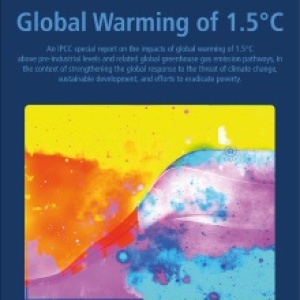
The Intergovernmental Panel on Climate Change (IPCC) has released a special report on keeping climate change to 1.5°C. The report says, “Limiting global warming to 1.5°C would require rapid, far-reaching and unprecedented changes in all aspects of society.”
According to the report, humans have already caused climate warming of 1.0°C above pre-industrial temperatures, and warming is likely to reach 1.5°C between 2030 and 2052 if it continues to rise at the current rate.
The report points out the significant benefits of limiting warming to 1.5°C compared to 2.0°C, including:
- Lower drought risk
- Lower heat extremes
- Lower sea-level rise (0.26 to 0.77 m by 2100 for 1.5°C, which is 0.1 m lower than predictions for 2°C)
- Lower species loss and extinctions, less ocean acidification, and
- Lower risks to human health, food security, water supply and economic growth.
To limit warming to 1.5°C, the report calls for transformations in energy, industry, cities and land use systems that are, “unprecedented in terms of scale, but not necessarily in terms of speed, and imply deep emissions reductions in all sectors, a wide portfolio of mitigation options and a significant upscaling of investments in those options.”
Several mitigation options presented by the report are relevant to food, including changes towards less meat-intensive diets, sustainable intensification of land use practices, and restoring ecosystems.
The report notes that all emissions pathways that keep warming to 1.5°C with little or no overshoot require 100 to 1000 Gt CO2 to be removed from the atmosphere during this century - however, carbon dioxide removal at the higher end of this scale is “subject to multiple feasibility and sustainability constraints”. Earlier reductions in emissions, energy use and land use could reduce the scale of carbon dioxide removal required and avoid reliance on bioenergy with carbon capture and storage (BECCS). For further discussion of the sustainability implications of BECCS, see Potentially dangerous consequences for biodiversity of geoengineering. For the pros and cons of each main category of carbon dioxide removal technology, see Negative emission technologies - What role in meeting Paris Agreement targets? See also World can limit global warming to 1.5°C ‘without BECCS’.
Read more here, view the summary for policymakers here, and read media coverage here and here. See also the Foodsource chapter How can we reduce food-related greenhouse gas emissions? and the paper Options for keeping the food system within environmental limits.












Post a new comment »